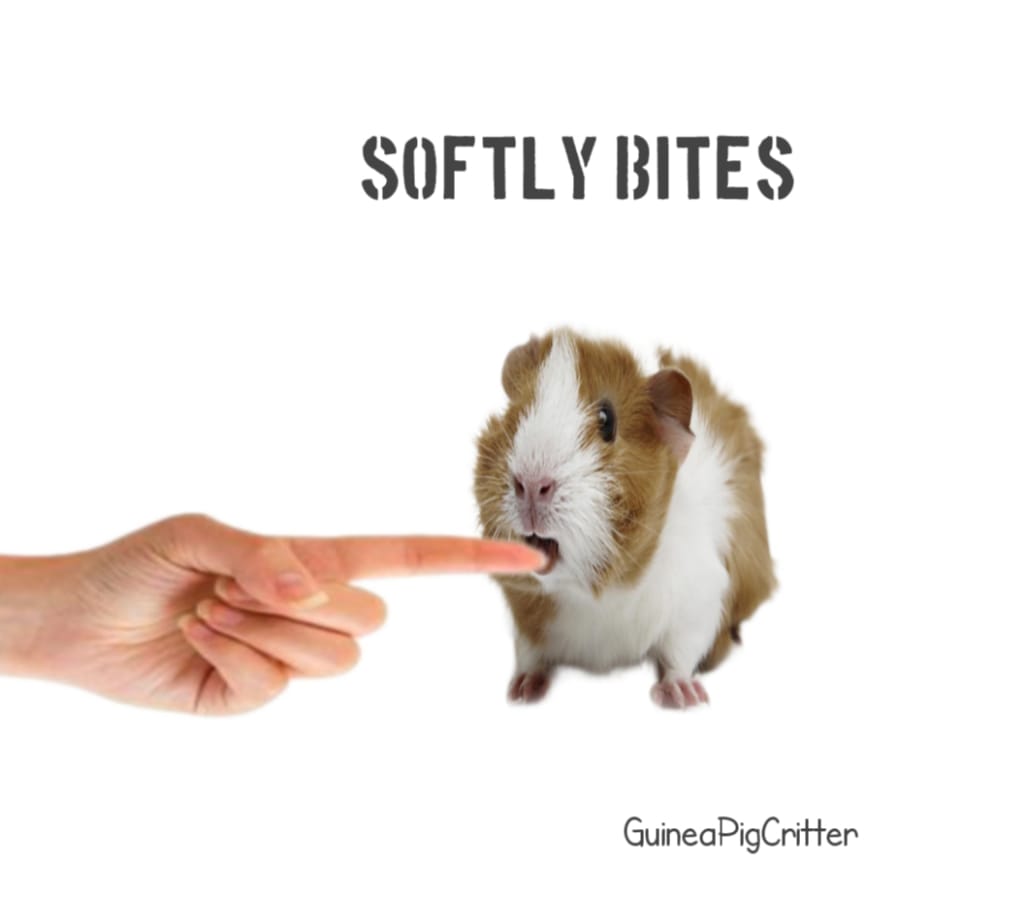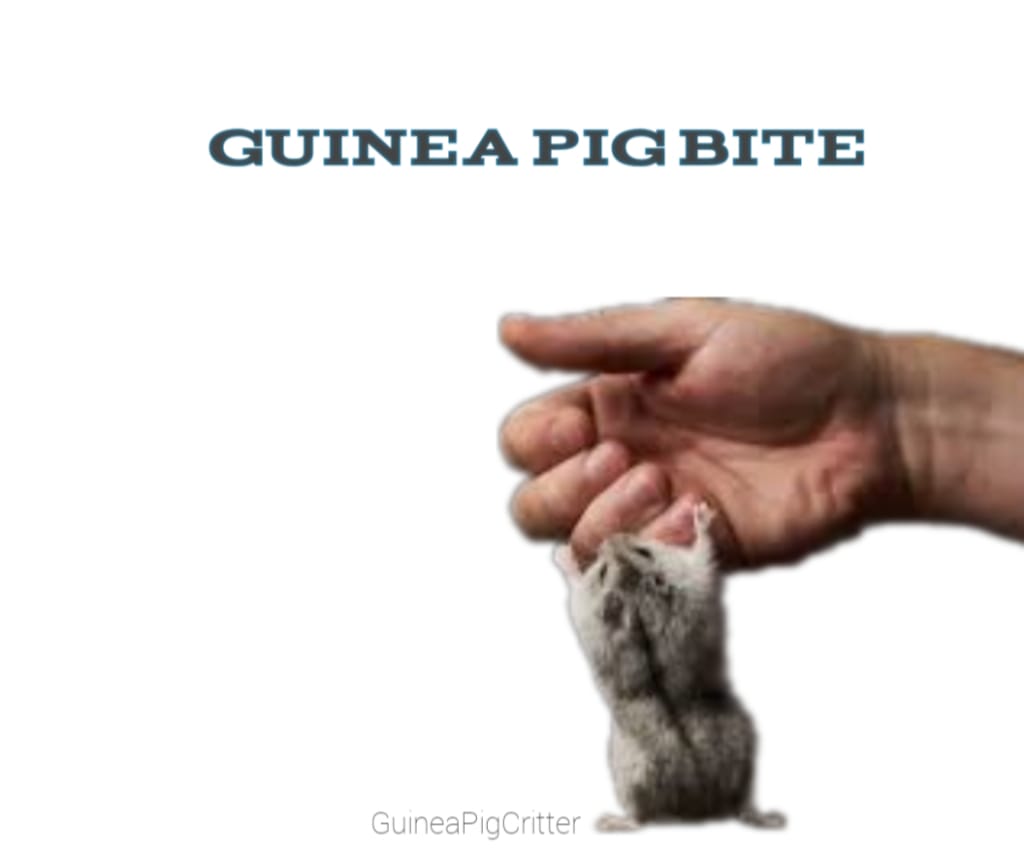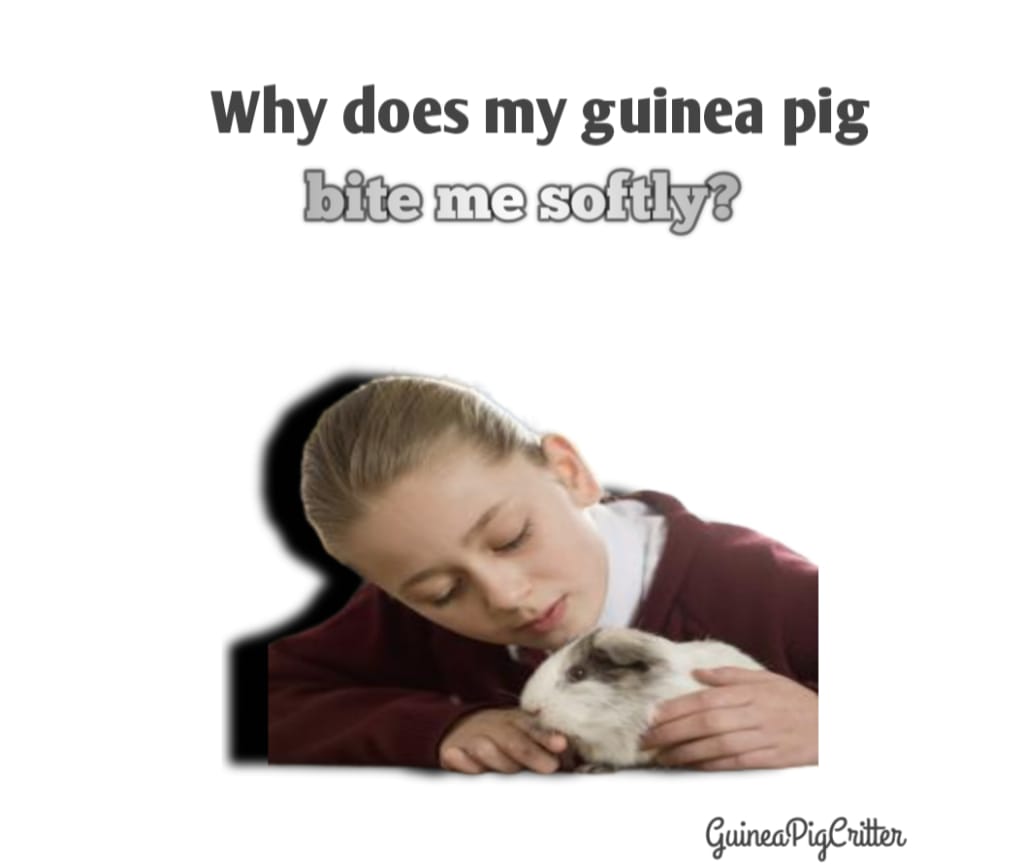Small pets such as guinea pigs are very popular pets as they are friendly and social. Understanding their behavior is, however, not easy for any new pet owner most especially their deceptive bites. If you have ever had one of such furry friends nibble on you gently, you must have asked yourself what the act means.
Soft biting in guinea pigs is common and in this post, we will raise several reasons towards its existence, its meanings as well as applications in building a cordial relationship with your pet.
Check this post:-Can Guinea Pigs Wear Sweaters?
Behavior of Guinea Pigs
Guinea pigs, or cavies, are friendly animals who prefer to stay within a group. In the wild its natural environment is a herd that to some extends affects the behavior of people as well.
Since guinea pigs are regarded as prey, they happen to depend so much on their body and sound in expressing themselves. These forms of expression also help in explaining the gentle biting of a guinea pig.
Hierarchy and Vocal Communications
Even in the wild, the guinea pigs have a rough social ladder and a comparative social structure, therefore in theories quite clearly is well understood. When kept as pets the verbal and the other non-verbal communications such as postures of the ears, whiskers, and tail make up the verbal interactions.
Understanding a guinea pig’s body language is crucial as it can allow owners to know when their pet is relaxed or tensed. For instance drooping ears are often a sign of tranquility while upright fur or tuck-in ear suggest that dominance or hostility is present.
Some other means of communicating feelings, thoughts, and emotions is through the use of biting. It is necessary to know when these attacks occur in order to cater to the desires and feelings of the pet.
Reasons for Soft Biting
Understand and Investigate
Guinea pigs are curious creatures by nature. They have well developed sense of touch and taste and often use their mouths to figure out their surroundings like a human baby uses hands. Sometimes a guinea pig will be playful and make attempts to gasp at your fingers or pants without really biting them.
Exploratory Behavior in Context
This behavior is especially common during nursing and other feeding activities, especially with young guinea pigs and when they are weaned or when they are presented with new objects. For example let’s say you have worn a new cloth or you recently brought in new toys for your guinea pig; chances are that your guinea pig will gently bite to feel the new stuff. It is quite normal for them to want to investigate the things and places around them; this is a natural way of them getting to know their world.
Example Scenario: My guinea pig and I are sitting on the floor cross legged, and my poor shoelaces are in frown of me. A guinea pig will probably try to gently chew on such string in order to satisfy his curiosity. This is said to be provoked by curiosity and it is not assertive.
Affection and Bonding
Soft biting can also mean an act of fondness or an attempt to hone in on the other party. Guinea pigs are most comfortable when they have company since they cherish company. When guinea pigs are comfortable, they tend to nip gently in a show of affection.
The Grooming Connection
In the wild, guinea pigs interact with each other and engage in grooming behaviors that help bond with other cavia Porcellos. This licking and biting each other includes nibbling one another’s hair. When a guinea pig plays with your fingers and slowly bites them, such behavior can be explained by the attraction to the social group.
Example Scenario: When my guinea pig walks towards me and touches my hand then slowly draws back making soft sounds, he may be using this behavior for this reason. They probably want to groom you or that they are trying to tell you that they like you.
Playfulness
Soft biting can also be playful teasing. Guinea pigs love playful situations and during boisterous moods, they may bite softly towards one another during playtime.
Promoting Playful Engagements
A common behavior of your guinea pig while playing or when feeding them treats is the playful biting. They may nip your fingers when they want to engage you into play or are too eager to ask for attention.
Example Scenario: Offering treats to your guinea pig and noticing that it is gently nibbling your fingers is nothing close to aggression. There is a high likelihood of fondness leading to the need for more contact.
Nervousness or Fear
Any forms of biting are not always necessarily nice or frolicsome. In fact soft biting behavior occasionally conveys an emotion in your guinea pig – nervousness or fear. When your cavy feels aggression or threatens to an extent that it is put in and cannot move, it will bite.
Feeling-It is possible to cut or suture such anxiety.
A guinea pig can also get anxious after there is a profound change in the stimulus of the environment or there are sudden movements, loud sounds, or presence of other animals or people. If you find that your scared or stressed guinea pig is nibbling at you, it would be best to reflect on what is going on and back away.
Example Scenario: If you’ve incorporated a new guinea pig or moved them to a different cage recently, then they might softly nibble when one approaches and this means that the pet needs a little more time to get settled in. Such immune dogs and other healthy pets need are careful enough to avoid basking these boundaries and so let them become accustomed to their new environment.
Teething or Discomfort
Especially for younger pigs, teething is probably one of the critical growth stages that they have to go through. In other instance, soft biting can be a coping mechanism for tooth development.
Signs of Dental Issues
Other reasons for biting may even originate from the dental issues of the guinea pig. Remember, biting is not uncommon for a guinea pig suffering from eye or tooth issues. Some signs may include not eating normally, drooling, or changes in attitude.
Example Scenario: Consequent to this, if there is aggression directed around and increased biting of other objects or their owners followed with apparent soreness of gums, a veterinarian should be sought. Persistent dental check-ups will allow effective surgeon evaluation to eliminate them before causing such discomfort on the pet.
Soft Biting: How to Deal with It
In order to comprehend how best to respond to the soft bites, it is essential that the causes of soft biting are described. The following may be found useful for this purpose:
Breathe Easy
Some of the other activities a guinea pig will exhibit emitting low growling sounds may include moderate bites to the owner’s being the most misinterpreted act. Whenever they are provoked and such interaction from you leads to a bite, try to keep cool. No screaming out or any sudden changes in their bodies. Emotional outburst can frighten them out predisposition only increasing anxiety and aggression.
Tip: Why it is that when your guinea pig does not bite hard, and rather, apart from advancing the threat, nubby its skin, thank you. Instead of being projected out as a hostile retaliation, it teaches them that attention will be turned away as a result of their culpability.
Positive Reinforcement
If your guinea pig becomes nibble, biting sweetly or playfully, then you need to encourage that as well. For instance, give them treats or light petting so that they will do that again.
Tip: When your guinea pig approaches you, you may offer a few pellets or some praise to the animal if they nip on your fingers in a very sweet and gentle manner. They are learning that there’s nothing wrong with a soft nibble.
Look at Their Body Language
Watching and noticing your guinea pig’s body language helps in how you derive at their instinctive feelings. In case their body language and ears are inclined in a dull position with the rest of their body relaxed, then the soft biting is most likely done in an affectionate or playful manner. However, if it shows signs of stress like tense ears and body, it indicates that something is wrong and the guinea pig may be scared.
Tip: Make it a point to watch how lively your guinea pig’s body language is during the period that you are handling them. If your guinea pig seems frightened, you should back off and return to the activity when they look more composed.
Promote Good Behavior
In most cases, when your guinea pig chews on things, it is most probably because they are bored. That is why there is always the need to give them something entertaining. And just like how most pets in the house serve this purpose, guinea pigs do also require a companion and active games. So if they are put down for playtime or given chewing toys, then they can channel that energy in positive directions.
Tip: When you can, consider changing their toys as often as possible so that their surroundings always remain interesting. There are also assortments of interactive toys that dispense treats which will encourage exploration without instilling any negative biting tendencies.
Make the Environment Safe Primary
In case your Peggie suffers from anxiety, it is best to provide them with a warm and secure environment. There is limited space allotted for loud sounds and sudden movement outside of their living quarters. If the surface of the guinea pig is stressed due to the presence of people, providing them with hiding places like shades would remove that stress.
Tip: Make sure that you sit near her cage for some time and speak to her gently and wait until she comes to you. This will enhance her trust in you and make her feel more comfortable in the environment.
When to Be Concerned
There is no harm with soft biting in most cases, however, there are cases where the act can call for concern. Here are some alarming situations that should demand investigation:
Constant Biting
If your guinea pig insists on biting you most of the times, there must be distress from their side. Liken the animal’s interactions with owners or anyone else to other variables, say their daily behavior or food intake.
Action Step: Try and maintain a log of your guinea pig’s behavior and look for any characteristics or things that trigger the activity. In the event that the biting occurs more often than it should or the animal tries to inflict damage, evaluate the situation and go for the help of the veterinarian or animal behaviorist.
Signs of Pain
If your guinea pig seems to be in pain by showing signs like limping, drooling, or not being able to eat, then you must take it to a veterinarian. Other than that, dental problems may lead to aggressiveness if they are not addressed properly.
Action Step: It is better to make a routine inspection of the guinea pig’s mouth, gums, and teeth for any warning signs that shouldn’t be there. If it seems that such symptoms start to appear in the guinea pig’s case, do not wait and make a veterinary appointment.
Aggression
Soft biting, unlike aggressiveness, which involves lunging or biting hard, is different from normal chomping. When punishing the guinea pig attacks, I start by looking for why it is fear that guides this aggression, or whether there are any health concerns.
Action Step: In anger management issues like these, it is advisable to seek the assistance of the health care provider and the pet therapist to evaluate the scene and give proper training procedures of syndromes or emotional behaviors that would solve the matter.
Conclusion
It is equally important to understand why your guinea pig is soft biting and how it will help you bond with your pet husky. Understanding your pet’s environment provides you important social cues that determine how you will react even if the behavior stems from curiosity, affection, playful, or uncomfortable action.
If your guinea pig is given an environment that is secure and stimulating, the chances of negative behaviors occurring are reduced and beneficial interactions can be encouraged.
Guinea pigs are, without a doubt, unique animals; however, their behavior can differ remarkably from one individual to another.


